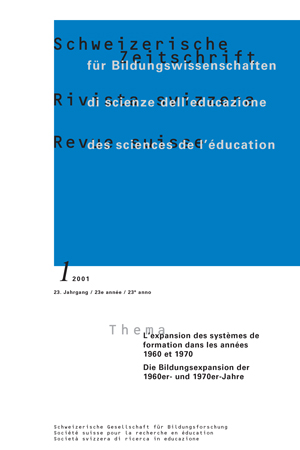The Major Counsel of Geneva and the facilitation of access to continuing schools for the children of lower social class (1885- 1977): between unbridled Malthusianism, lack of the upcoming generation, and aspiration for equalization of chances for the succ
DOI:
https://doi.org/10.24452/sjer.23.1.4595Abstract
The article describes the history of the demand for equal chances at school at the parliament of Geneva between 1885 and 1977. To begin with, there is an increase of democratic awareness in regard to the facilitation of access to higher education for the children of disadvantaged social classes; this soon, in connection with the access of available professions, is combined with aggressive Malthusianism.
It was mainly the Social Democratic Party that fought for the introduction of uniform schools, from which it expected fundamental compositional changes of the élites. The progress of this confrontation altered itself when experts showed the majority of the parliament that the school of Geneva wasn’t as democratic as it perceived itself, and most of all, the aforementioned Malthusianism was able to create a loudly lamented lack of an upcoming generation. The right and the political middle now advocated what the left had hoped for, but with completely different motives. The battle for equal chances of success at school now entered the era of ambiguities.
Downloads
Downloads
Published
Issue
Section
License
Copyright (c) 2001 Charles Magnin

This work is licensed under a Creative Commons Attribution 4.0 International License.



